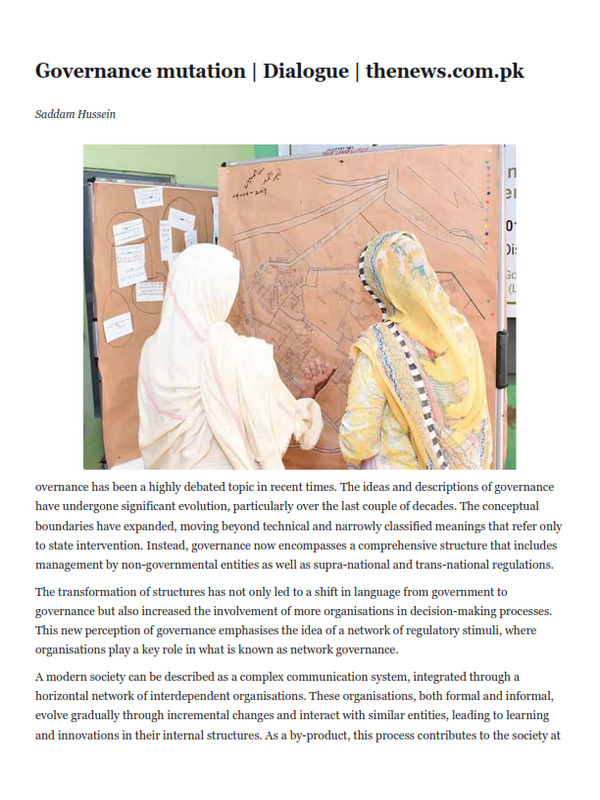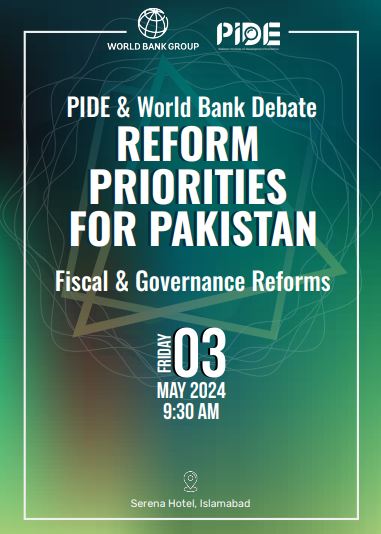Governance mutation
Two reasons why Pakistan has not undergone a transition to network governance.
Governance has been a highly debated topic in recent times. The ideas and descriptions of governance have undergone significant evolution, particularly over the last couple of decades. The conceptual boundaries have expanded, moving beyond technical and narrowly classified meanings that refer only to state intervention. Instead, governance now encompasses a comprehensive structure that includes management by non-governmental entities as well as supra-national and trans-national regulations.
The transformation of structures has not only led to a shift in language from government to governance but also increased the involvement of more organisations in decision-making processes. This new perception of governance emphasises the idea of a network of regulatory stimuli, where organisations play a key role in what is known as network governance.
A modern society can be described as a complex communication system, integrated through a horizontal network of interdependent organisations. These organisations, both formal and informal, evolve gradually through incremental changes and interact with similar entities, leading to learning and innovations in their internal structures. As a by-product, this process contributes to the society at the aggregate level, pushing it towards a transition from government to network governance.
As a result, the role of government is minimised, and governance through a network of organisations in their respective domains takes over. These developments lead to the emergence of mega sub-systems such as the economic system, political system, traditions, values and more. Together, these sub-systems constitute a social order, including organisations within the framework of the state as well as those in the private sphere. Functionally independent organisations play an exceedingly significant role in our times. Perpetual organisations are increasingly important for sustaining the social order.
Perpetual organisations have their own rules that remain unchanged with the change of players, including the management, e.g. the Pakistan Bar Council. While the developed world has experienced a transition from government to network governance, most developing countries, including Pakistan, have yet to undergo this transition.
Contrary to the original idea of governance, it is still perceived as ‘the government having strict control over things’ in Pakistan.
There are two important reasons why Pakistan has not undergone the transition to network governance. First, a well-connected coalition dominating decision-making processes at all levels, from legislation to provision of public goods. Second, the government has a far bigger footprint than in most developed countries. It is doing many things that it should not be doing.
A Pakistan Institute of Development Economics (PIDE) research team led by Dr Nadeem-ul-Haque, has found that the government’s economic footprint amounted to 67 percent the national economic pie.
Contrary to the original idea of governance, it is still perceived as ‘the government having strict control over things’ in Pakistan. As a result, organisations – whether political, social or economic – have been unable to mature and achieve perpetuity; and the idea of organisations being agents of change in the society has not materialised. Instead, organisations remain stagnant. This reinforces the personal element, nepotism and red-tape.
In Pakistan, governments have tended to change the rules of the game. This makes it harder to make credible commitments. The rules of a game should not change in the middle of the game because every agent in the society is entitled to a level playing field.
In the absence of perpetuity, there are apprehensions about the social contract that the state has with its citizens. This creates unpredictability and instability, preventing some agents in the society from engaging in healthy economic or political activities as they can no longer calculate their pay-offs.
A sense of urgency is needed to shift from government to network governance.





